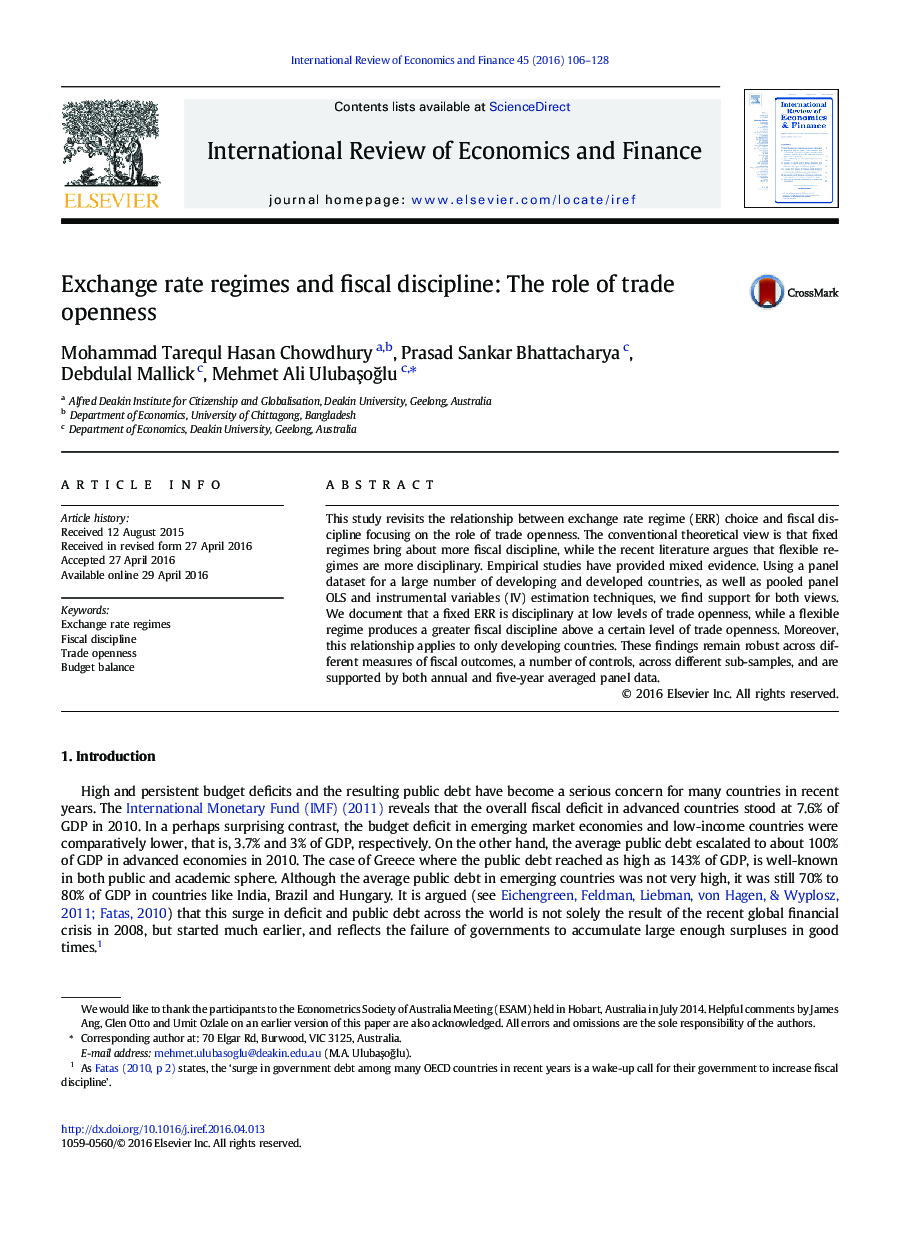| Article ID | Journal | Published Year | Pages | File Type |
|---|---|---|---|---|
| 5083269 | International Review of Economics & Finance | 2016 | 23 Pages |
â¢Trade openness moderates the effect of exchange rate regimes on fiscal discipline.â¢Fixed regimes are more disciplinary at low levels of trade openness.â¢Flexible regimes are more disciplinary at high levels of trade openness.â¢These findings are applicable to developing countries only.
This study revisits the relationship between exchange rate regime (ERR) choice and fiscal discipline focusing on the role of trade openness. The conventional theoretical view is that fixed regimes bring about more fiscal discipline, while the recent literature argues that flexible regimes are more disciplinary. Empirical studies have provided mixed evidence. Using a panel dataset for a large number of developing and developed countries, as well as pooled panel OLS and instrumental variables (IV) estimation techniques, we find support for both views. We document that a fixed ERR is disciplinary at low levels of trade openness, while a flexible regime produces a greater fiscal discipline above a certain level of trade openness. Moreover, this relationship applies to only developing countries. These findings remain robust across different measures of fiscal outcomes, a number of controls, across different sub-samples, and are supported by both annual and five-year averaged panel data.
